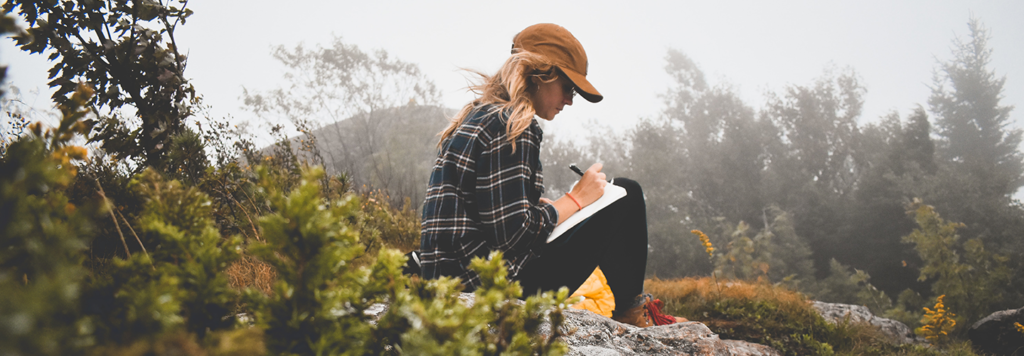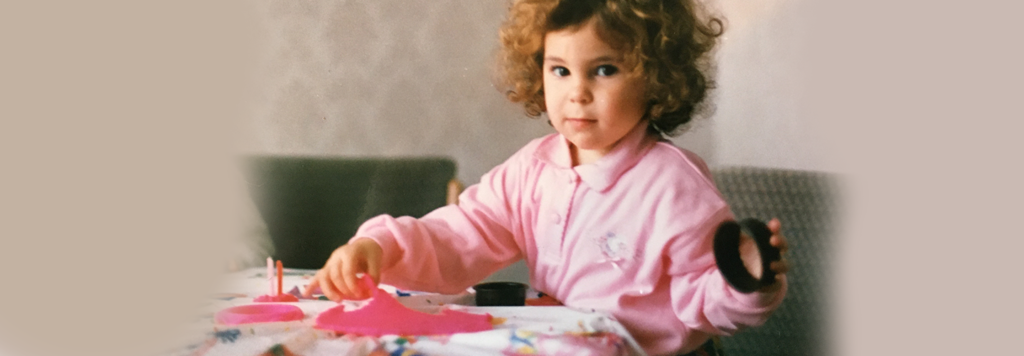The world feels heavy this week with news on the war in Ukraine and our creativity has taken a nose dive. What can we do to support ourselves and our feelings at this time?
In this episode, I talk about the practice of journaling and journal therapy. Learn about how it differs from writing in a diary and find out the multiple benefits for your mental health with this practice. I’ll walk you through a couple of exercises to help you get started with journaling and you’ll find it’s much easier than you think!
Got a burning question you’d love me to answer? Send me a voice message and I’ll answer in a future episode at https://www.speakpipe.com/CreativePower
To find out how to work with me visit www.camillafellasarnold.com/creativepower
For episode transcripts visit: https://camillafellasarnold.com/category/podcast/
Sign up to the newsletter to find out about group journaling classes at: https://camillafellasarnold.com/newsletter/
Transcript
Welcome to Creative Power!
This week has been feeling pretty heavy with the news of war in Ukraine for me. And I’ve talked about it before that in survival or stressful situations, one of the first things that stops is creative flow.
And it can be really difficult for those of us who are on the outside, in other countries watching the horror unfold because of course, we feel helpless to the conflict. But for those of us with creativity as our main line of work or an integral part of our being and overall happiness, the stall in our creativity can feel stressful too.
So today I want to talk about what we can do to support ourselves when we feel emotionally splayed all over the carpet and I want to talk about journaling and journal therapy which I did some CPD training in a couple of years ago.
It’s something I absolutely love doing because it is so insightful and healing and I think right now it’s a great thing to do to help unpack all the emotions that we’re experiencing because there’s so much going on in the world right now. There’s fear and confusion, hope and despair. We’re all wondering what events mean for our futures both collectively and individually – it’s a lot to deal with!
I’m sure you’ve heard of journaling already and I feel it’s important to clear up the difference in the meaning of some of the words like diary writing, journaling and journal therapy.
Diary writing is probably what you think I mean when I talk about journaling. It’s what a lot of people do before bed where we write about our day. It’s a daily record of events. Diary writing is freeform, there’s no structure, you are simply writing down thoughts and details about the day. And it can be a really good way to empty your brain before bed of everything that happened.
And that’s where it diverges from journaling and journal therapy.
Journaling is much more directed and structured than diary writing. It will typically start with a prompt, a question or an exercise and your writing flows from there. Journaling can still record events like you would in diary writing but the difference lies in that during a journaling session, you analyse what comes up. The thoughts, events, emotions, you don’t just write them down and forget about them.
With journaling, you actually analyse them for fresh insight, learning and healing. You may be able to do this alone or this is when it moves into journal therapy when it’s an exercise supported by a therapist, health professional or even a coach like myself.
Journaling can help you build your confidence, create more joy and gratefulness in your life and overcome negative past experiences. It can reduce stress and anxiety, help you regulate emotions and build emotional intelligence.
Journaling can even boost your working memory as it works like defragging a computer. Think about the way we store memories or traumatic events as fragmented thoughts. Ever opened a cupboard filled to the brim and just shoved something in any available space? That’s what the brain does with our memories.
So when we journal on a specific event, we pull all of these strands together from all the places it’s been left fragmented and turn it into one continuous train of thought which is more comprehensive. Because we are taking time to really unpack the entire event or memory, it gives our brain time to bring up the little details we thought we’d forgotten but actually, they were just stuck in a shoebox at the back of the metaphorical cupboard of our minds. Piecing all the little details together not only gives us a much clearer picture of what happened but helps us process it better.
Journaling can even be done in group settings which creates a sense of community, belonging and provides fresh perspectives outside of your own. Group journal classes can help you feel less alone and you can learn new things about yourself even by listening to other people talk about their own challenges. And I’m genuinely thinking about running some group journaling classes to support this so if this is something you’re interested in, sign up to my newsletter – I’ll link to it in the show notes and you’ll be the first to hear when I’m doing something in this space.
In the meantime, what can you do right now to help yourself with journaling? You absolutely can do it for yourself and it’s not as difficult as you think. Here are some basics on getting started.
First of all, you don’t need fancy equipment to begin journaling. A pen and paper will do the job just fine. Yes, you can choose yourself a beautiful pen and notebook if you want but it’s not necessary. This isn’t about perfection, this is about processing and healing so start with what’s available to you.
You can type on a computer but journaling is generally better when handwritten because it activates more areas of the brain. However, if writing by hand is not accessible to you for whatever reason, don’t worry about it. Typing will still work!
Don’t worry about your writing being messy either because no one will read it except you. Unless you want to share. This is private writing for you to process thoughts and emotions so it can be sloppy, it’s more about getting the thoughts out of your head and onto paper.
So with that in mind… the best piece of advice I can give you is don’t hold back. Don’t filter your thoughts. If you’re worried someone might see what you’ve written, you can burn the paper later – which actually might work quite nicely as a ceremonial way of letting go of the event and closing that chapter of pain in your life. But seriously, if you’re worried about other people reading it, you won’t be truly honest with yourself. It’s safe for you to write whatever you want when you’re journaling so really go for it.
To support this, create a space that feels safe to journal. Block out time in your schedule so you know you won’t be disturbed. Look at what will help you block out the rest of the world, background music, white noise, burning candles or incense, sitting inside of a cocoon of blankets and turning off all the tech.
Do whatever makes you feel totally safe, comfortable and private when you sit down to journal because it can bring up a lot of emotions and you don’t want to interrupt that process so give yourself the time you need, the time you deserve to do it.
You can even think about what you need at the end of your journaling session to gather your thoughts and get yourself feeling back in your body. Perhaps some quiet time with your thoughts is enough, maybe a walk or eating some food to help you feel more centred and grounded.
A couple of other things to remember – date everything because if you do decide to keep the reflections, you can look at them at a later date and track your progress. Also, be clear on why you’re doing the journaling. It isn’t freewriting like in a diary, come to journaling with the intention of working through an event, memory or emotion. Being clear on what you’re hoping to achieve from the journaling session will help you stretch beyond a simple record of events and allow you to actually unpack and heal it.
So now you know some basics of journaling, what kind of prompts and exercises could we do that would support how we’re feeling at the moment?
One thing you could do is list writing. Write a list of all the things that are making you feel say, anxious, fearful, sad or any other emotion you’re feeling. You can do it for positive emotions too like things you are grateful for in life right now. The idea is that you write the list without stopping. Keep drilling down, keep going unfiltered, uncensored. Don’t overthink it. The list can help you connect dots in what situations are triggering certain feelings.
And then this is where it becomes more than just a list of scary things. Take time to examine the list. Why do they make you feel like that? What can you do about them? How much truth is behind these things on your list? This is where you start to filter out what fears are just noise and what things you can actually take action over to regain a sense of control and momentum to move forward.
Another exercise that could work well is the unsent letter. With war on our minds, it’s easy to think about our own mortality. What ifs can spiral out of control in our heads and suddenly you can be filled with regrets for things you’ve said and done, people you’ve hurt or have hurt you.
It could be to someone that is inaccessible for whichever reason, it could be that they have passed on and you didn’t get a chance to say everything you wanted to say. This is where the unsent letter can work really well because it’s your chance to be completely honest and say everything on your mind knowing it won’t be seen by that person.
And in the case of the situation, we’re seeing unfold in the world right now, the letter doesn’t have to be to a specific person. It can be to a place, for example, some people use unsent letter writing for their new home or to thank their old home and let it go. You could write the letter to yourself, now or even your younger or future self and share insights and wisdom with them. You could write a letter to your emotion of fear, whatever feels right to you.
Once you’ve written that letter, as with any journaling exercise, the reflection of what you’ve written is what moves this into a tool for healing ourselves.
Return to what you’ve written. Acknowledge it, reread and reflect on it. And then ask yourself what new thoughts and feelings come up as your read back over those words. Have you written anything that is surprising? Do you accept what you wrote? What fresh insight or new perspectives have you gained on the situation you’ve written about?
Think about whether the writing or reflection process has brought up any physical reactions – why do you think that happened? Has writing about it changed how you feel about the situation?
And most importantly, reflect on what can you do now? Has what you’ve written inspired any action or ideas within you that you could take forward? It could be that the exercise has made you realise that you have more control over the situation than you thought or there are more actions you could take that would support you moving forward. You could realise through the journaling that you need extra help to support your healing from a professional or that there’s a person you actually need to talk to in order to gain closure, seek forgiveness or something else entirely.
It’s these actions and insights that can help you find a way to move forward which is what we all need right now. It’s very easy to sit there feeling paralysed and helpless but this can create more internal stress for ourselves.
So if you’re feeling low and the only thing you do for yourself is spend twenty minutes journaling on how you feel about what is going on in the world right now, then that’s twenty minutes well spent, helping you make sense of your feelings.
Self-care isn’t all bubble baths, face masks and smoothies. Sometimes it’s sitting down with a pen and paper and facing our emotions head on. Writing about them, writing with them and really unpacking them, to free ourselves from their grasp. Honestly, I’ve been journaling daily for over a year now and it is a really powerful tool that anyone can do.
However, if you feel unsure where to start or feel you need more support in the process, as I said earlier, I will be setting up some group journaling around this so sign up for my newsletter if you want to be in the know about when it runs as I don’t have any details yet. I’ll be honest and say this episode wasn’t what I planned to talk about today but I personally woke up feeling so helpless, the world felt so heavy this morning that my plan went out of the window in favour of talking about something that can genuinely help us as individuals right now so I’m not exactly organised in running the group journaling as of yet.
But hey, that’s how these things happen right? Sometimes in situations like this, we stop being creative in our usual ways and come up with solutions out of necessity like this episode. Giving ourselves permission to not be our usual creative selves in these circumstances is really important and also makes way for unexpected answers to our prayers.
If this is your first time journaling off the back of this episode, I wish you the best of luck and I hope it helps you. Do let me know how you get on with it and send me a message if you have more questions as I can always do a follow up episode with more detail.
And finally, it’s been a tough week so make time to be kind to yourself today. See you in the next episode.





